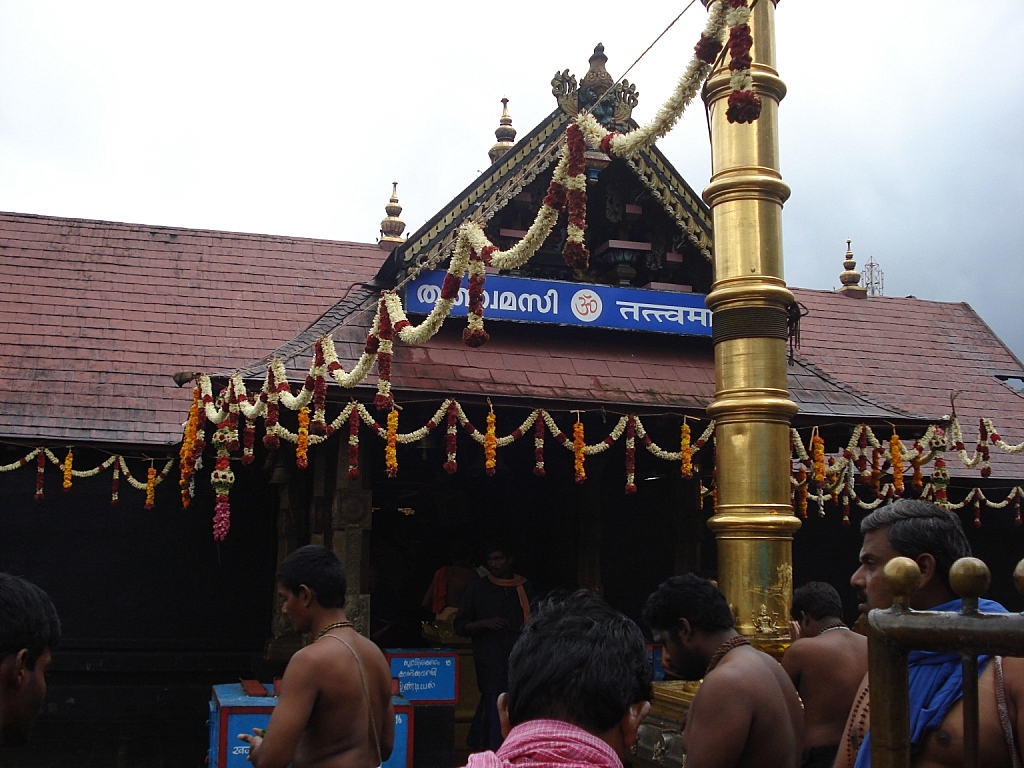Supreme court opens
doors for Sabarimala temple for women of all ages
Why in the News?
The Supreme Court has allowed the woman of every age to enter
the temple while announcing the historic judgment on the entry of women in
Sabarimala temple in Kerala. In the verdict of the majority of 4: 1, the
Constitution Bench of five judges has clarified that women of all ages can now
enter the temple. Along with this, the Supreme Court has issued a notice to the
Kerala High Court
Supreme Court verdict
Hundreds of years old tradition of Sabarimala temple in which
the women of the age group of 10 to 50 years were barred from entry into the
temple is totally unconstitutional.
The position of women in the country's culture is
respectable. Where women are worshiped as goddess on the one hand they are
prevented from entering the temple on the other. This kind of malevision is not
appropriate in the name of religion and preventing women from entering the
temple on the basis of age is not an integral part of religion.
On the basis of biological and physical characteristics such
as menopause, it is unconstitutional to stop women from entering the temple. It
is a breach of rights of women and their dignity.
The right to worship women in the temple has the right to
equality, so it is fundamental to give women the right to enter the temple.
Preventing women from entering Sabarimala was a bias towards
women, it was not an essential part of religion.
The Supreme Court has issued 'Kerala Hindu Place of Public
Weirship Rule, 1965 (Kerala Hindu Places of Public Worship Rules,
1965) rules number 3 (b) which prohibits the entry of women
in the temple, has been declared beyond the legal power of the constitution.
Preventing women from entering the temple is a form of
untouchability which is a violation of Article 17 of the Constitution.
What questions were examined by the Constitution Bench?
The Supreme Court, in 2006,
In the matter of public interest litigation filed by the
'Indian Young Lawyers Association' by the beneficial organization, in 2017, the
matter was referred to a constitution bench of five judges.
The Constitution bench of the five judges of the Supreme
Court examined the following questions on the many important issues related to
gender discrimination and fundamental rights of religious freedom and the
violation of fundamental rights -
♦ Is there a
gender discrimination in the practice of prohibiting entry of women due to
physical changes?
♦ Can the
women out of 10 to 50 years of age be considered an integral part of religious
customs under Article 25?
♦ Can
religious institutions claim such customs under religious freedom to manage
their affairs?
♦ Will the
Ayyappa Temple be considered a religious institution, while its management is a
legislative board,
Kerala and Tamil Nadu Government Budget?
♦ Can such
institution maintain such practice by violating the principles of Article 14,
15 (3), 39 (A) and 51 A (e) of the Constitution?
♦ Is any
religious institution entering the entry of women from 10 to 50 years to
'Kerala Hindu Place of Public Worship Rule, 1965 (Kerala Hindu Places of Public
Worship Rules,
1965) on the basis of rule number 3?
Background
According to tradition in Sabarimala temple, entry of women
from 10 to 50 years is prohibited.
According to the temple trust, there is a ban on entry of
women for 1500 years. Some religious reasons are given for this.
Kerala's 'Young Laws' Association filed a PIL in 2006 against
the ban in the Supreme Court.
Every year from November to January the devotees come to the
temple of Lord Ayyappa in Sabarimala temple, apart from this whole year the
temple is closed for the common devotees.
Makar Sankranti's day is very special for the devotees of
Lord Ayyappa,
That is why most devotees reach the place that day.
According to mythology, Ayyappa is considered to be the son
of Lord Shiva and Mohini (a form of Vishnu ji).
Conclusion
Certainly the Supreme Court's decision on the entry of women
in Sabarimala temple is historic. Through this decision, the court has not only
kept equality above religion but has rejected discrimination on the basis of
conservative thinking in the modern thinking society.
No comments:
Post a Comment